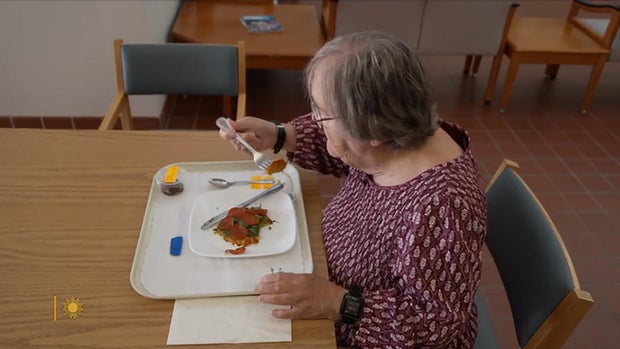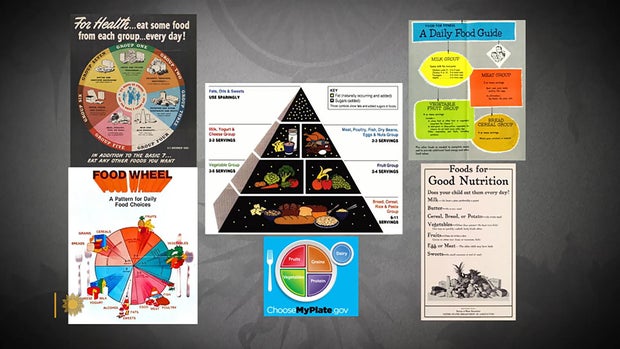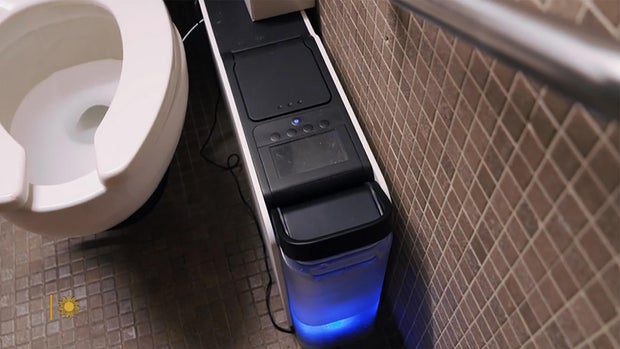CBS News
A severe geomagnetic storm is headed toward Earth. Here’s what could happen.

A severe geomagnetic storm headed toward Earth has the potential to knock out power and electronics this weekend, but it could also bring a spectacular light show from the aurora borealis as far south as Alabama and Northern California.
After days of heightened solar activity, NOAA’s Space Weather Prediction Center issued Thursday its first watch for a G4 storm — the second-strongest rating on a scale from G1 to G5 — in nearly 20 years.
“Geomagnetic storms can impact infrastructure in near-Earth orbit and on Earth’s surface, potentially disrupting communications, the electric power grid, navigation, radio and satellite operations,” NOAA said. “[The Space Weather Prediction Center] has notified the operators of these systems so they can take protective action.”
Risks to the power grid
A G4 geomagnetic storm is considered “severe” and has the potential to cause widespread voltage control problems to the power grid. According to NOAA, it could also cause some protective systems to “mistakenly trip out key assets from the grid.”
These types of effects on power systems were first noted in 1940 and have been reported throughout the years, with incidents including a power blackout in 1958, equipment tripping and voltage stability issues in 1972 and a nine-hour blackout in Canada in 1989, according to NOAA.
The last time there was a G5 or “extreme” geomagnetic storm was in October 2003, when it caused power outages in Sweden and damaged transformers in South Africa.
Effect on satellite and radio operations
As of Friday afternoon, NOAA had also observed a moderate solar radiation storm that could expose people in high-flying aircraft to “elevated radiation risk” and could cause infrequent issues with satellite operations.
With a G4 storm, “satellite navigation could be degraded for hours,” it warns.
Radio blackouts have also been detected with an R3 designation, meaning that the blackouts were “strong” on a scale from R1 (minor) to R5 (extreme). At this level, wide blackouts of high-frequency radio communication is expected, as well as loss of radio contact, for about an hour on the sunlit side of Earth, as low-frequency navigation signals decline for roughly an hour.
Expansion of northern lights
The same phenomenon that causes these disruptions is also responsible for making the aurora borealis viewable in places you normally can’t see them.
“Earth’s magnetic field guides the electrons such that the aurora forms two ovals approximately centered at the magnetic poles,” NOAA said. “During major geomagnetic storms these ovals expand away from the poles such that aurora can be seen over most of the United States.”
Vivid displays were visible over parts of Europe and the U.K. on Friday night.
Owen Humphreys/PA Images via Getty Images
“If you happen to be in an area where it’s dark and cloud free and relatively unpolluted by light, you may get to see a fairly impressive aurora display,” Rob Steenburgh, a space scientist with the National Oceanic and Atmospheric Administration’s Space Weather Prediction Center, told reporters Friday. “and that’s really the gift from space weather, is the aurora.”
CBS News
A study to devise nutritional guidance just for you

It’s been said the best meals come from the heart, not from a recipe book. But at this USDA kitchen, there’s no pinch of this, dash of that, no dollops or smidgens of anything. Here, nutritionists in white coats painstakingly measure every single ingredient, down to the tenth of a gram.
Sheryn Stover is expected to eat every crumb of her pizza; any tiny morsels she does miss go back to the kitchen, where they’re scrutinized like evidence of some dietary crime.
Stover (or participant #8180, as she’s known) is one of some 10,000 volunteers enrolled in a $170 million nutrition study run by the National Institutes of Health. “At 78, not many people get to do studies that are going to affect a great amount of people, and I thought this was a great opportunity to do that,” she said.
CBS News
It’s called the Nutrition for Precision Health Study. “When I tell people about the study, the reaction usually is, ‘Oh, that’s so cool, can I do it?'” said coordinator Holly Nicastro.
She explained just what “precise” precisely means: “Precision nutrition means tailoring nutrition or dietary guidance to the individual.”
The government has long offered guidelines to help us eat better. In the 1940s we had the “Basic 7.” In the ’50s, the “Basic 4.” We’ve had the “Food Wheel,” the “Food Pyramid,” and currently, “My Plate.”
CBS News
They’re all well-intentioned, except they’re all based on averages – what works best for most people, most of the time. But according to Nicastro, there is no one best way to eat. “We know from virtually every nutrition study ever conducted, we have inner individual variability,” she said. “That means we have some people that are going to respond, and some people that aren’t. There’s no one-size-fits-all.”
The study’s participants, like Stover, are all being drawn from another NIH study program called All Of Us, a massive undertaking to create a database of at least a million people who are volunteering everything from their electronic health records to their DNA. It was from that All of Us research that Stover discovered she has the gene that makes some foods taste bitter, which could explain why she ate more of one kind of food than another.
Professor Sai Das, who oversees the study at Tufts University, says the goal of precision nutrition is to drill down even deeper into those individual differences. “We’re moving away from just saying everybody go do this, to being able to say, ‘Okay, if you have X, Y and Z characteristics, then you’re more likely to respond to a diet, and somebody else that has A, B and C characteristics will be responding to the diet differently,'” Das said.
It’s a big commitment for Stover, who is one of 150 people being paid to live at a handful of test sites around the country for six weeks – two weeks at a time. It’s so precise she can’t even go for a walk without a dietary chaperone. “Well, you could stop and buy candy … God forbid, you can’t do that!” she laughed.
While she’s here, everything from her resting metabolic rate, her body fat percentage, her bone mineral content, even the microbes in her gut (digested by a machine that essentially is a smart toilet paper reading device) are being analyzed for how hers may differ from someone else’s.
Nicastro said, “We really think that what’s going on in your poop is going to tell us a lot of information about your health and how you respond to food.”
CBS News
Stover says she doesn’t mind, except for the odd sounds the machine makes. While she is a live-in participant, thousands of others are participating from their homes, where electronic wearables track all kinds of health data, including special glasses that record everything they eat, activated when someone starts chewing. Artificial intelligence can then be used to determine not only which foods the person is eating, but how many calories are consumed.
This study is expected to be wrapped up by 2027, and because of it, we may indeed know not only to eat more fruits and vegetables, but what combination of foods is really best for us. The question that even Holly Nicastro can’t answer is, will we listen? “You can lead a horse to water; you can’t make them drink,” she said. “We can tailor the interventions all day. But one hypothesis I have is that if the guidance is tailored to the individual, it’s going to make that individual more likely to follow it, because this is for me, this was designed for me.”
For more info:
Story produced by Mark Hudspeth. Editor: Ed Givnish.
“Sunday Morning” 2024 “Food Issue” recipe index
Delicious menu suggestions from top chefs, cookbook authors, food writers, restaurateurs, and the editors of Food & Wine magazine.
CBS News
A new generation of shopping cart, with GPS and AI

Watch CBS News
Be the first to know
Get browser notifications for breaking news, live events, and exclusive reporting.
CBS News
“All hands on deck” for Idaho’s annual potato harvest

Watch CBS News
Be the first to know
Get browser notifications for breaking news, live events, and exclusive reporting.












